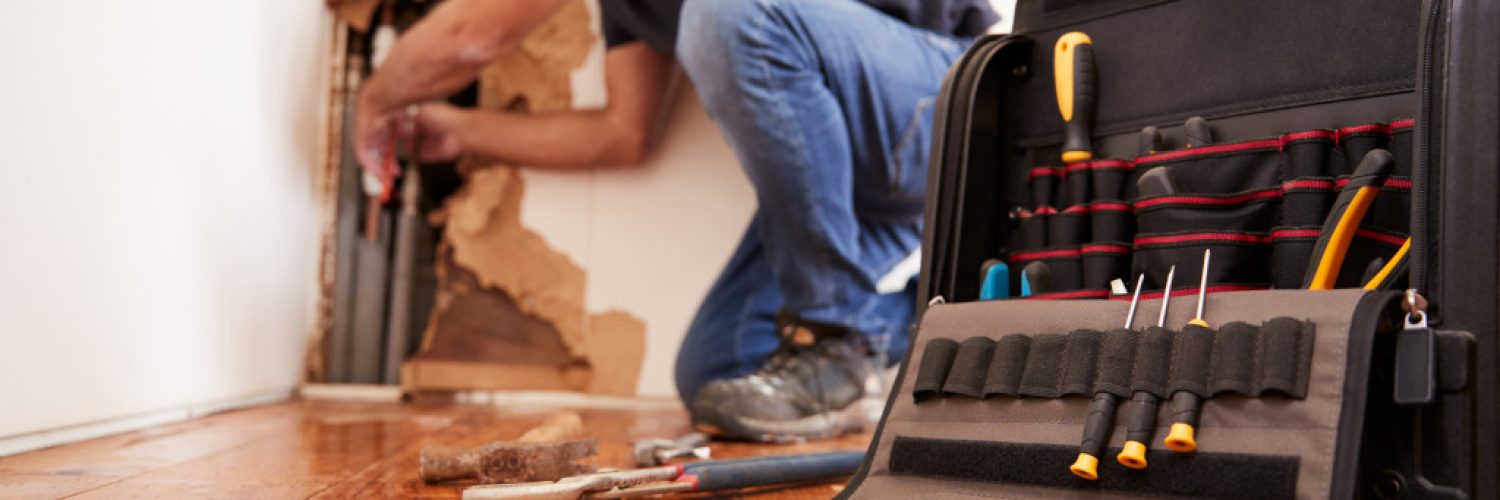One of the best ways to avoid having to do costly repairs is to prevent damage from happening in the first place. As a homeowner, you can do a few easy things to help keep your home in top condition and avoid unnecessary wear and tear. This blog post will provide tips on avoiding damage around your home so that you can save money and keep your home looking its best.
1. Inspect Your Gutters and Downspouts Regularly
Gutters and downspouts are essential for directing water away from your home, which can help prevent water damage to your foundation or basement. Inspect them regularly for any debris or blockages that could cause problems. The common problem of leaves and sticks causing gutters to overflow can be easily remedied by regularly cleaning them out.
You should also ensure that your gutters are properly installed and in good repair. Leaks or holes can cause water damage to your home, so it’s important to fix any problems as soon as possible. No matter how well you maintain your gutters, they will eventually need to be replaced. Depending on your home type and climate, this could be every 20 years.
2. Keep an Eye on Trees and Shrubs Near Your Home
Trees and shrubs can be beautiful additions to your landscaping, but they can also cause problems if they’re not well maintained. Overhanging branches can damage your roof, and roots can damage your foundation or sidewalks. Be sure to trim any branches that are close to your home and remove any trees or shrubs that are too close to your foundation.
You should also have your trees regularly inspected by an arborist to check for any problems that could cause them to fall. And be sure to call a tree removal service if you have any dead or dying trees on your property.
3. Seal Any Cracks or Gaps Around Your Home
Cracks and gaps in your home’s exterior can let in water, insects, and other pests. These openings can also cause heat to escape your home, leading to higher energy bills. To help prevent these problems, be sure to seal any cracks or gaps around your home with caulk or another type of sealant.
In case the water damage increases, contact restoration services to help with the restoration process. These professionals have the experience and equipment to properly clean and repair your home. So, if you think your home has suffered any damage, don’t hesitate to call a restoration company.

4. Inspect Your Roof Regularly
Your roof is one of the most important parts of your home to prevent damage. Inspect it regularly for any missing or damaged shingles and any signs of leaks or other problems. If you live in an area with severe weather, you should have your roof inspected by a professional after every storm.
A well-maintained roof can last for many years, but eventually, it will need to be replaced. Depending on the type of roof and the climate you live in, this could be every 20 to 30 years. When it’s time to replace your roof, be sure to use a reputable contractor who will install a high-quality roof that will last for many years.
5. Regularly Inspect Your Home’s Foundation
No matter what type of home you have, its foundation is one of the most important parts. A foundation that’s in good condition will help prevent water damage, pest problems, and other issues. Be sure to inspect your foundation regularly for any cracks or other problems.
If you see any problems, be sure to call a professional to repair them as soon as possible. A foundation that’s in good condition will help keep your home safe and sound for many years to come.
6. Check Your Home for Mold
Mold can cause various health problems, so it’s important to keep it out of your home. So check for mold regularly, especially in areas that are prone to moisture, such as the bathroom or basement. If you see any mold, clean it up immediately and fix any leaks or other problems causing moisture in the area.
Mold can be difficult to remove, so it’s often best to call a professional if you have a serious problem. But with some basic cleaning and maintenance, you can help prevent mold from taking over your home.
There you go! These are just a few tips to help you avoid damage to your home. Taking simple preventative measures can save you a lot of time, money, and stress in the long run.

